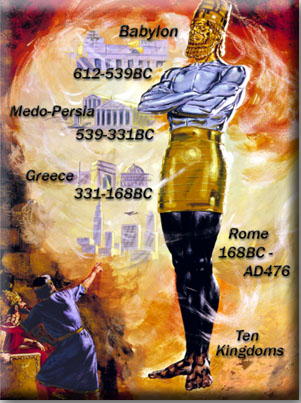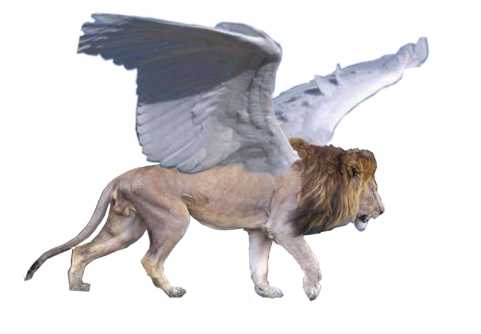Can the Bible Be Trusted?
There are a lot of things in life that we learn sooner or later cannot be trusted.
Things change. They don't stay the same. People change. Life itself
changes. People prove dishonest, or maybe just plain fickle. Dishonesty
in business practices is present throughout the world, and investments in them can
simply disappear (please don't think the author believes all businesspeople to be
dishonest - most are honest but there are dishonest ones out there too). So,
naturally the question arises, who or what can I trust? These questions are
always present if you are human!
The same is true with regards to God and the bible. Is there a God?
Is the bible his word? Can I trust it? These are questions that deserve
honest answers where they are available. The author does not pretend to have
all the answers, nor are all questions answerable. This page will try to point
you in the direction of some of the answers that are available, and to resources
for those not readily available (or to where somebody else says it better than the
author is able).
Can you tell what the world will be like in 1,000 years? Could you foretell
the rise of particular individuals or powers that will do certain things more than
2,000 years into the future? Well, you could, but you probably would not be
right. The extremely great likelihood that you will be wrong need not stop
you from making such a prediction, but the fact that you would be wrong simply tells
us that you are human, that you don't know the future. That is true of all
of us, so join the club!
Is there a God? That question cannot be answered with precision like some
questions in mathematics or science. God does not present himself to us so
that we can take samples of his body and study it in a test tube. Why?
I don't know. He just does not do that. But maybe it has something to
do with a statement Jesus once made to his critics, where he said something to the
effect that even if the dead were to rise, they would not believe in him.
So, my best guess is that God has some reason for which he finds it necessary to
require us to take the evidence we have and make our decisions based on that - sort
of a "faith" (trust in what you have not actually seen is the best definition
I can give of such faith). This kind of faith is not so unusual because we
exercise it to some degree every day. Consider that when you turn on a light
switch. You trust that something you have never actually seen (electrons)
will be flowing through the wires to provide power to heat and light your home or
office. In conclusion of this matter, I believe that there is reasonable evidence
that he actually exists. Below is some of that evidence.
What of God, can he tell the future? If so, how can he do that? Would
you, the reader, consider the ability to accurately foretell the future far in advance
as reasonable evidence that there is a God and that his word can be trusted?
Consider that God himself suggests that this is an evidence for you to consider.
He says in Isa 46:9-10
Remember the former things of old: for I am God, and there is none else; I am God,
and there is none like me, declaring the end from the beginning, and from ancient times
the things that are not yet done, saying, My counsel shall stand, and I will do all my
pleasure.
Here we have it that God has the ability to foretell the future and that there
is nobody else like him. He essentially tells us here that what he decides
the future to be is what will actually occur. So, he is therefore, the only
one able to accurately foretell the future as it will actually happen. It
seems reasonable to believe that he tells us this about himself to help us understand
that he really is there.
So, what evidence do we have that he has accurately foretold the future? To
answer that question, the reader needs to understand that there are those who claim
that God did no such thing. But, they are wrong. There is evidence that
things were written ahead of time and it can be reasonably demonstrated that this
is so.
Now, one of the best evidences that the bible can be trusted and that God did fortell
the future is found in the life, death, and resurrection of Jesus. Many of
the events of his life were foretold centuries before they actually happened.
There are over 300 prophecies of the life, death, and resurrection of Jesus in the
Old Testament.
Click here so you can read about these prophecies
Consider the probability of 300 plus prophecies coming true in the life of one man. You
can show that these were made centuries before Jesus, so how can one doubt that God exists
and that he is able to foretell the future?

Another evidence that God can foretell the future is found in the book of Daniel.
Here, the individuals written of in that book are given dreams or visions in symbols
that foretell the future. The first is the story recorded in Daniel, chapter
2, in which Nebuchadnezzar (king of Babylon) was shown a large statue or image of
a man with different body parts made up of different metals. The head was
of gold, the arms and chest was made of silver, the belly and thighs of brass, the
legs were of iron, and finally the feet were made of iron mixed with clay.
The different body parts were symbolic of empires or corresponding time periods
from that time to the end of the world in that region of the world, so the head
of gold represented Babylon, the arms and chest of silver represented the Medes
and Persians (what is today Iran), the belly and thighs of brass represented Greece
under Alexander the Great, the legs of iron represented Rome, and the iron mixed
with clay represented the kingdoms that would come out of Rome which would not again
stick together long term from the end of Rome to the end of the world.
Did this dream come true? Yes, so far every bit of it has been accurately
fulfilled. There are those who have claimed that Daniel was written in the
early part of the 2nd century BC (which is very likely wrong), but assuming that
to be true, you would still have Rome yet to deal with and the kingdoms afterwards
(consider that Rome officially ended in 476 AD and the kingdoms to follow started
after that). They might have guessed wrong about Rome (which had not yet become
an empire at the time the book of Daniel is presumed to have been written by these
critics), and would very likely have been totally wrong about what would follow
Rome if this had been an after-the-fact reporting claiming to be prophetic.
Yet it is right, so that is quite remarkable.
The Beast in Daniel 7
Bablyon
 Medo-Persia
Medo-Persia
 Greece
Greece
 Rome
Rome

The prophet Daniel was himself given dreams of the future, only this time strange
looking beasts were used as symbols of the kingdoms, both present and future.
Again, 4 beasts were used, but this time more details were added in (you can read
about this in the book of Daniel, chapter 7). The additional details add an
interesting twist to this dream of the future. It was symbolized that the
Medes and Persians would make conquests in 3 stages (believed to be symbolized by
the 3 ribs in the mouth of the bear). The kingdom of Alexander the Great would
be broken up 4 ways. That Rome would be broken up into 10 representative kingdoms,
and that an additional different power would come out of Rome which would be different
than all previous powers and seems inclined to fight directly against God (which
might suggest it is a religious power). It in turn would somehow be influential
in causing 3 of the 10 representative kingdoms coming out of Rome to be destroyed.
Further, it would have power for 1260 days (symbolic of years). All of these
things have been accurately fulfilled in history and were prophesied long before
they happened.
Again, you have prophecies that cannot have been made after the fact, yet came
true exactly as stated and scheduled. How? Guessing? I think not.
For more likely it is by somebody who knew the future accurately - God. How
do I know that? Well, the details on the 4th beast, for example, shows a breakup
of Rome, not another conquerer who would control that area again. Further,
it shows the rise of a religious power to follow on after Rome, which is found to
have occurred in the form of the Catholic Church. Anybody who knows history
knows that these details were written of before the time of Jesus, for we know he
was historical and we know he quoted from the book of Daniel.
Now, another evidence is the presence of life in this universe and the universe
itself. Scientists have devised theories of evolution for life (that does
not mean they are right about evolution as the source of life) and have extended
that to the universe itself where it evolved from nothing in a probable big bang
billions of years ago. You may or may not believe that is how the universe
was created. But, assume for a moment that the scientists are right and then
consider this: They have no answers as to how the rules of the universe came
to be set the way they are. Not a clue. And, those rules have to be
set just right, or the universe itself and life upon this world would be impossible.
Either the big bang would have failed by collapsing in on itself, or else you would
get an explosion with too much force, with the result that not even formation of
atoms would have occurred. All that would have remained is particles moving
outwards so fast that atoms never would form. Consequently, you would not
even get stars, galaxies, or planets. Our universe would just be black empty
space with particles streaming out very fast. The result would be a lifeless
universe. So, how did those rules come to be? Or was it a Somebody with
infinite wisdom who devised the whole thing and set the rules? Somebody self
existing without beginning or end? God? Something to think about.
A final challenge I throw out to you is this. If you still don't believe that
there is a God, let's play a little "what if" game. I say there
is a God. You say there isn't. Pretend for a minute that you are right
and I am wrong. We both go on living our lives and hopefully both of us enjoy
them. We have our challenges and meet them reasonably well most of the time.
We get old and die and both go to our graves. And that is the end of the story
forever for us. No resurrection, no judgment, no reward of any kind, good
or bad. Now, the cost to you for this belief, should you prove right, is essentially
nothing, assuming you live a normal life. To me, on the other hand, I might
have missed out on a few "good" things, but perhaps I will have missed
out on a few bad things too because I would live my life as a Christian (I am not
perfect and will fail at times to live up to it, but I do try). So, I might
lose some and gain some. Perhaps the overall cost is nothing to me either.
In the end, we both end up in the same circumstances, no matter our condition in
life.
Now, lets reverse the scenarios. I say there is a God, while you say there
isn't, but someday we both find out I am right. Before that happens, you go
on living as a non Christian until you die. You have a good life. But,
you ignore God or his claims upon your life. At the end of your life, you
go to your grave. Meanwhile, I choose to live a Christian life. I miss
out on some bad things, and include some good things in my life because of that
choice. Perhaps the overall cost appears to be nothing. But, at the
end of my life, I die and go to my grave just like you do. It does not look
like I gained much at that time, does it? After all, it appears then that
we both have ended up in the same circimstances, does it not?
Now, later God comes back to earth to claim his own. I come up at the resurrection
and go to heaven. You end up on the condemned side when the resurrection of
those who have not claimed God occurs. You are condemned in the judgment to
eternal destruction (which means death - again - and nonexistance for eternity).
I get to live in eternal life, with a very wonderful life of leaning, travel throughout
the universe, a beautiful home and land to live on that no creditor can take away
from me, and lots of good friends to spend it with, including God himself, the creator.
On top of that, there is no death, illness, cancer, or pain there.
Now, which would you rather have? Its not pie in the sky. God is real,
and so are the consequences of our choices. You can choose for or against
God today. I would urge you to choose for God. You'll be glad you did.
Oh, and while you are at it, spend time with God through reading his book (the bible)
and prayer. Get to know him and what he is like.
For further information, you might consider reading this book:
The Case for Christ, A Journalist's Personal Investigation of the Evidence for Jesus,
by Lee Strobel, published by Zondervan Publishing House of Grand Rapids, Michigan, USA,
Library of Congress ISBN 0-310-22649-5. This book is quite thorough and inexpensive,
yet very readable.
Now, can you trust the Bible? One of the better sources of information for
that is found on the RBC Ministries web site, so
click here to read their short book on whether or not you can trust the bible.
RBC Ministries produces an excellent series of TV programs of biblical interest
that the author has encountered and found them to be of good quality. Other
sites where you can read about the reliability of the bible are:
This page from a Church of God web site
The Bible - You're Kidding, right?
(note this site is a little "different")
Why the Bible is the Word of God
How Far Can We Trust the Bible?
Bible History Web Site - Bible Believers Archeology
Some of the materials of these web sites repeat, but the different approaches create
different ways to see things.
Note that the authors of this site list the sites above to help you gain trust and
confidence in the bible. Some of them also teach some things that the authors
of this site disagree with, but there are things on their web pages that are of
value. Please understand that we do not endorse everything they teach.
Take what is of value to you and ignore the rest.
It is important to understand that God has genuinely spoken to mankind down through
the ages. It is also important to find the source of that communication that
is reliable and accurately conveys what he wants said. The bible is your best
source for that.
If you have very little knowledge of the bible, click here for a general outline of the bible.